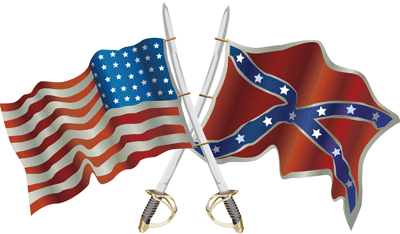What Is Hiding in Your Closet?
What is hiding in your closet … not to mention your attic, your basement and your garage? How about your desk drawers?
The Dickson house has no attic. The basement has been turned into a bedroom; the garage is full of sports equipment — fishing gear, waders and a jumbo canoe along with my assortment of gardening supplies, implements and birdseed. Closets are full of clothes, most of which are seldom worn and which someone, usually moi, threatens to clean out and give away. The desks are stuffed with important papers — insurance information, passports, tax returns and the like.
Some families, though, actually have interesting items in their storage.
A childhood friend recently told me about Civil War-era family letters detailing daily life during those agonizing years as well as accounts of the bodies of soldiers lying when they fell on her family’s Alabama land. The letters are written on wallpaper, apparently the only medium available, and stowed in envelopes folded from the same.
My friend and many others like her are just the folks the Museum of the Cape Fear is hoping to meet.
The Civil War unfolded and played out on southern soil, including our own here in the Fayetteville community. North Carolina suffered more casualties than any other state. These historical realities mean that many southern families have kept Civil War-era documents and photographs, handing them down reverently through subsequent generations.
The Museum of the Cape Fear, which is part of the North Carolina Museum of History, wants to know about these photos and documents — letters, diaries, entire books even. More than that, it wants copies of them to preserve for posterity in our state’s archives, and it is making it easy for those who have these materials to share them with the rest of us.
On Saturday, March 9, professionals from the North Carolina Department of Cultural Resources will be on hand at the museum to scan such family documents and pictures digitally or to photograph them. This is an opportunity to make sure that individual family histories as revealed in writing and in picture — records of people and events which shaped our state’s larger history — are both known and preserved. The documentation effort is also part of the planning for a proposed statewide North Carolina Civil War Center, which would be built near the current Museum of the Cape Fear adjacent to the grounds of the historic Fayetteville Arsenal. Says Cape Fear Historical Complex Foundation President Tad Prewitt, “We are excited about this program as we believe the documents and photographs people have could potentially unlock some exciting stories that might become part of the story we will tell with the new, proposed history center.”
Interest in the Civil War and its aftermath is high as our nation commemorates the 150th anniversary of this wrenching conflict. It is also high in our own community, which endured a visit from Union General William Tecumseh Sherman, his more than 60,000 troops and 25,000 camp followers for several long days in March of 1865. It is stunning to contemplate what that invasion of humanity must have been like for the maybe 6,000 Fayetteville residents, 2,000 of whom worked at the doomed arsenal. Sherman came to our city solely to destroy that arsenal, which he did with efficiency and dispatch. Visitors today can walk along the stones of its foundations, but that is about it. Sherman executed his job well in the waning days of the Civil War.
The scanning project is a pilot for a larger program, which museum leaders hope to rollout region-wide later in 2013 and statewide in 2014 to gather as much historical material in private hands as possible.
A word about what the scanning project is not.
It is not an opportunity for Civil War documents and photos to be appraised or sold. Your family treasures will simply be copied and put into our state’s archives and returned to you. They must be original and the property of those bringing them in to be scanned. Oversized or fragile documents or items such as multi-page documents may have to be transported to Raleigh for scanning.
Many people in our community and beyond have stories of Civil War-era heroism, suffering, tragedy and healing that resonate through their family histories, and they are also part of North Carolina’s history.
We can share these with each other and the rest of the state on March 9 from 10 a.m. to 4 p.m. at the Museum of the Cape Fear on Bradford Avenue, just off Hay Street.
I hope to see you there, even though the Department of Cultural Resources has expressed no interest in a photo of the Dickson’s large red canoe.
Photo: Interest in the Civil War and its aftermath is high as our nation commemorates the 150th anniversary of this wrenching conflict.
 How to resolve AdBlock issue?
How to resolve AdBlock issue? 








